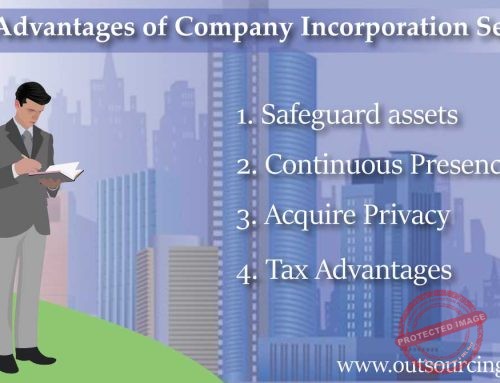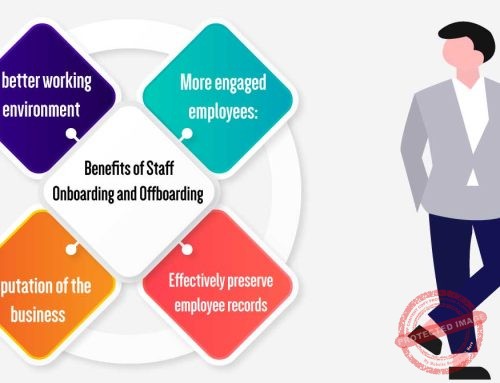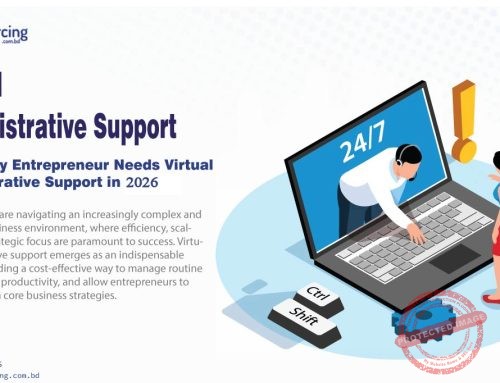Become An Expert On Managed Accounting
Accounting management, often known as managerial accounting, is the act of delivering financial data and resources to managers to aid in decision-making. Managerial accounting is concerned with assisting businesses by measuring and analyzing on their financial performance and continuing operations. The goal of management accounting is using statistical data to make better and more accurate decisions in order to oversee the firm, its activities, and its growth.
More than 58% of accountancy firms invest in accounting solution that meets customer demands.
Key Points:
- Managerial accounting entails the presenting of financial data for internal use by managers in making important business decisions.
- The manner management accounting data is presented can be changed to suit the demands of the end-user.
- Accounting standards do not determine the techniques adopted by certified a management accountant.
Objectives Of Accounting Management
- Information Usage: Accounting management is the process of presenting accounting data in a way that allows management, shareholders, and creditors to examine financial statements and manage risk.
- Decision Making: Accounting data is used to solve a variety of management issues and help the management in decision making.
- Coordinating Business Operations: Managerial Accounting service assists management in monitoring and controlling the organization’s performance.
- Motivating: Strategic management accounting aims to promote employee productivity and, eventually, inspire the organization as a whole by goal setting, establishing the best and most cost-effective courses of action, and monitoring employee performance.
- Organizing: Accounting and Financial Management allocates and organizes human and nonhuman resources in order to carry out plans properly.
- Strategic Planning: Strategic planning gives economic and statistical data that can be used to create objectives and develop future policies.
Methods Of Managerial Accounting
- Product Costing and Valuation: Total investments associated with the manufacturing of goods or services are determined by product costing.
- Inventory Turnover Analysis: Inventory turnover analysis is a method of accountancy management that examines how much inventory a business sells or replaces over time.
- Cashflow Analysis: This type of managerial accounting examines how cash flow is affected by corporate choices.
- Constraint Analysis: Certified management accountants examining cost restrictions look for areas of manufacture, transformation, or procurement where costs can build up and destabilize the operation.
- Financial Leverage Analysis: Balance sheets are frequently examined by management accounting services in order to discover and evaluate how a company’s capital assets and liabilities come together to form leverage.
- Budgeting and Forecasting: Accounting management services include budget analyses and predictions, which are useful to keep on standby in case of an audit or any budget variances.
How Much Does Accounting Management Cost
- In-house Accountant/Accounting Department: Hiring an in-house accountant or establishing an accounting department involves expenses such as salaries, benefits, payroll taxes, and overhead costs. The cost can range from $40,000 to $100,000 or more per year. Depending on the location and experience level of the accountant(s).
- Outsourced Accounting Services: Outsourcing accounting management to a professional firm or agency can provide cost savings, especially for small and medium-sized businesses. Generally, outsourcing can range from $500 to $5,000 or more per month. Depending on the volume and complexity of transactions, financial reporting needs, and the level of support required.
- Accounting Software Costs: If you choose to manage accounting in-house using accounting software, you will need to consider the cost of software licenses or subscriptions. Basic accounting software can start as low as $10 to $50 per month, while more advanced or enterprise-level software can range from $100 to $500 or more per month.
- Additional Costs: It’s important to consider other potential costs related to accounting management. Such as fees for tax preparation and filing, auditing services, legal compliance assistance, and consulting fees for complex financial matters.
Benefits Of Management Accounting Services
- Accounting Management Services automate every transaction record which saves both time and cost.
- Accountancy Management improves financial visibility by tracking spending, revenues, profits, and losses across various corporate divisions and departments.
- The computation method is automate with management accounting services. It can also detect problems such as duplicates. Accountants might devote more time to tasks that require their expertise rather than spending time updating data.
- You can simply estimate asset deterioration, monitor inventory expenses. And do stock taking with the help of an managerial accounting system.
- Automated accounting software help you to monitor the financial information of your business in real time.
Limitations Of Managerial Accounting
- Information Based on Financial Accounting: The managerial accounting team makes decisions based on the information provided by Financial Accounting.
- Insufficient Knowledge: Accounting management lacks economic, financial, statistical, and other skills.
- Outdated Data: The management team obtains historical information, which may or may not change when management makes decisions.
- Expensive: A managed accounting system requires a significant investment.
Necessary Skills For Efficient Managerial Accountant
- Mathematical and Analytical Skill: To generate financial predictions, engage with important persons concerning budgets, and direct expenditure and income allocation operations. A certified management accountant uses his or her expertise of mathematics and analysis.
- Budget Analysis: Several duties that accountants are accountable for that employ their budgetary analysis skills include the capacity to analyze spending trends, design cost-cutting initiatives, and incorporate plans for increasing business service performance.
- Communication Skill: To obtain and present financial information and interact with others, managerial accounting requires excellent communication.
- Problem Solving Skill: Management accounting services develop answers and assist organizations in overcoming financial difficulties.
Tips for Accounting Management
Managing accounting effectively is crucial for the financial health and success of your business. Here are some tips to help you streamline your accounting processes and ensure accurate financial management:
- Implement a Reliable Accounting System: Choose a robust accounting software or system that suits the needs of your business. Look for features such as invoicing, expense tracking, financial reporting, and integration with other software or platforms.
- Establish Clear Accounting Policies and Procedures: Develop document accounting policies and procedures that outline how financial transactions should be record, approve, and report.
- Maintain Accurate and Timely Record-Keeping: Keep organized and up-to-date records of all financial transactions, including invoices, receipts, bank statements, and payroll records. Consistent record-keeping helps in tracking expenses, reconciling accounts, preparing financial statements, and meeting tax obligations.
Conclusion
Our managerial accounting service is primarily focus on internal data collection and reporting. Our services include focusing on our clients’ retained earnings, banking transactions, operating expenditures, and accounting rate of return. We qualified management accountants analyze and gather data. Then turn them into briefings that help with your capital budgeting and investment plans. So, contact us today if you are seeking for an outstanding accounting management service!






